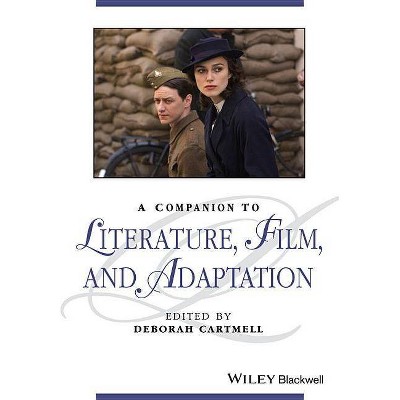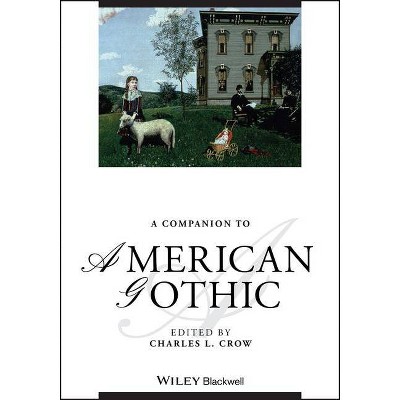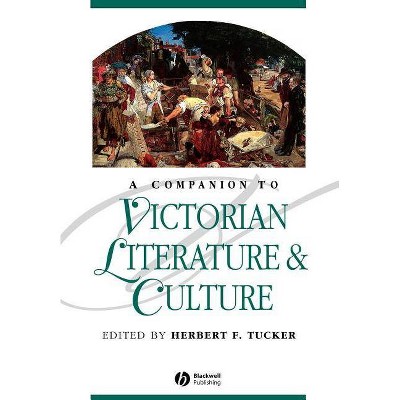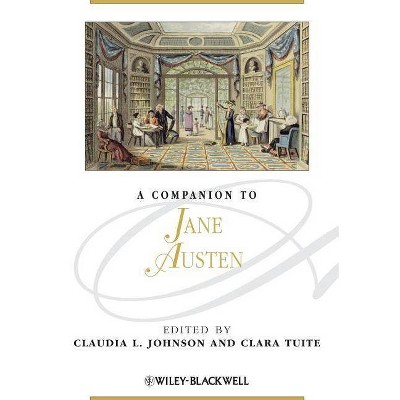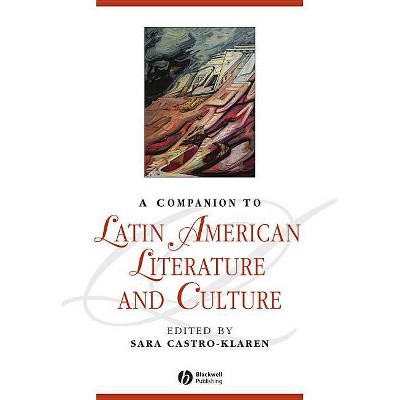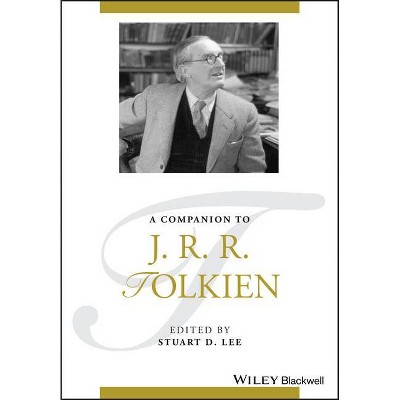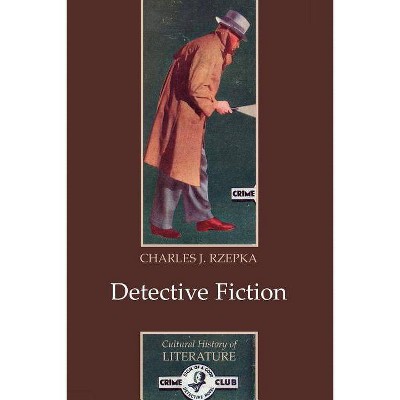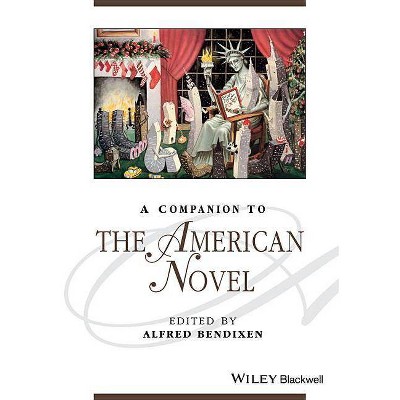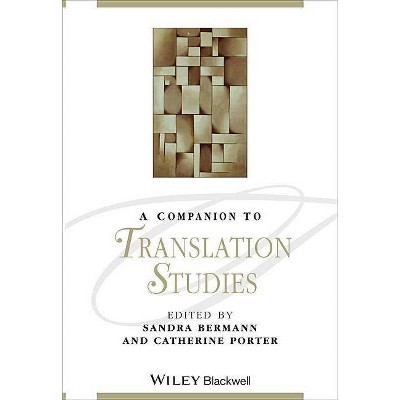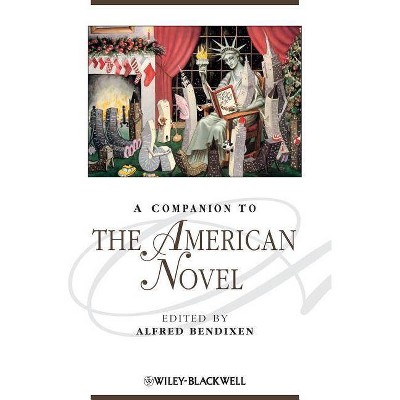A Companion to Crime Fiction - (Blackwell Companions to Literature and Culture) by Charles J Rzepka & Lee Horsley (Paperback)
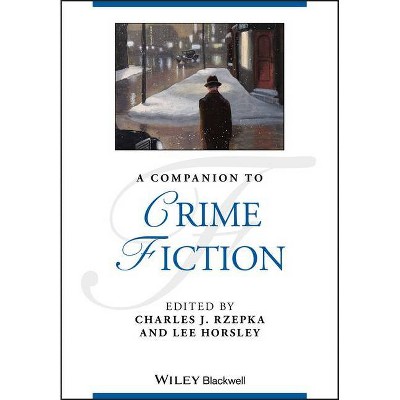
Similar Products
Products of same category from the store
AllProduct info
<p/><br></br><p><b> Book Synopsis </b></p></br></br>A <i>Companion</i> <i>to Crime Fiction</i> presents the definitive guide to this popular genre from its origins in the eighteenth century to the present day <ul> <li>A collection of forty-seven newly commissioned essays from a team of leading scholars across the globe make this <i>Companion</i> the definitive guide to crime fiction</li> <li>Follows the development of the genre from its origins in the eighteenth century through to its phenomenal present day popularity</li> <li>Features full-length critical essays on the most significant authors and film-makers, from Arthur Conan Doyle and Dashiell Hammett to Alfred Hitchcock and Martin Scorsese exploring the ways in which they have shaped and influenced the field</li> <li>Includes extensive references to the most up-to-date scholarship, and a comprehensive bibliography</li> </ul><p/><br></br><p><b> From the Back Cover </b></p></br></br><p><b>A COMPANION TO CRIME FICTION</b> <p>This cutting edge <i>Companion</i> brings together a series of 47 original essays from some of the world's leading authorities to provide the definitive guide to crime fiction from its origins in the eighteenth century to its phenomenal present-day popularity. <p>Part One follows the development of crime fiction over the last three centuries, examining the traditions and conventions of the genre, as well as its cultural and social contexts, before moving on, in Part Two, to explore the different types of genres and subgenres that have emerged. The final chapters profile 20 of the most significant crime writers and film makers - from William Godwin to Arthur Conan Doyle to Agatha Christie to Martin Scorsese - examining the ways in which they have shaped and influenced the field.<p/><br></br><p><b> Review Quotes </b></p></br></br><br>"Including a helpful introduction by Rzepka and conclusion by both editors, the volume is a welcome addition to the impressive "Blackwell Companion to Literature and Culture" series and to scholarship on crime and detective literature. Summing Up: Recommended. Upper-division undergraduates through faculty and professionals; general readers. " (Choice, 1July 2011) <p>"Whilst the editors admit that the collection is not entirely representative (there is no mention of Japanese manga, for instance, or any consideration of hybrids of crime and science fiction), this companion offers an encyclopaedic account of crime fiction and its generic cross-fertilisations, and is an essential guide for students and scholars alike." (Routledge ABES, 2011)</p> <p>"This substantial and informative book covers a wide variety of themes within the genre and also a long time span from the eighteenth century to the present . . . It will give all aficionados of the genre hours of enjoyment. It is indeed a trusty companion that will entertain and add to our knowledge." (Reference Reviews, 2011)</p> <p>"It will give all aficionados of the genre hours of enjoyment. It is indeed a trusty companion that will entertain and add to our knowledge." (Languages & Literature, 2011)<br /> <br /> "Several of the contributors praise books and authors long out of print. Hopefully, this companion will encourage readers and librarians to hunt them down and enjoy." (Book News, 1 March 2011)</p> <p>"In all, despite its shortcomings in terms of narratology and a few logical inconsistencies, Rzepka and Horsley's Companion to Crime Fiction offers a broad-ranging and well-argued introduction to this field of popular culture. Beginning students will certainly profit from its thematic diversity and wide historical reach." (Kult Online, 2011)</p> <p>"<i>A Companion to Crime Fiction</i> goes into enormous detail but is reasonably easy to read. It is not an academic-styled book but a guide to how crime fiction has developed over time to accommodate an increasingly demanding audience/reader. With essays from some of the most educated scholars in this field of research, the reader gains a greater understanding in terms of a general overview of the genre, individual authors and producers of film, the blurred lines between crime fiction and other genres and an in depth, well researched analysis of crime fiction itself." (<i>M/C Reviews</i>, November 2010)</p><br><p/><br></br><p><b> About the Author </b></p></br></br><p><b>Charles J. Rzepka</b> is Professor of English at Boston University, where he teaches and writes on British Romanticism, popular culture, and detective and crime fiction. His publications include <i>The Self as Mind</i> (1986), <i>Sacramental Commodities</i> (1995), <i>Detective Fiction</i> (2005), <i>Essays, Inventions, Interventions</i> (2010), and most recently, <i>Being Cool: The Work of Elmore Leonard</i> (2013; pbk 2017). <p><b>Lee Horsley</b> is a retired Reader in Literature and Culture at Lancaster University, where she taught two specialist crime courses. Her publications include <i>Political Fiction and the Historical Imagination</i> (1990), <i>Fictions of Power in English Literature 1900-1950</i> (1995), <i>Twentieth-Century Crime Fiction</i> (2005), and an expanded paperback edition of the 2001 publication <i>The Noir Thriller</i> (2009).
Price History
Price Archive shows prices from various stores, lets you see history and find the cheapest. There is no actual sale on the website. For all support, inquiry and suggestion messagescommunication@pricearchive.us
